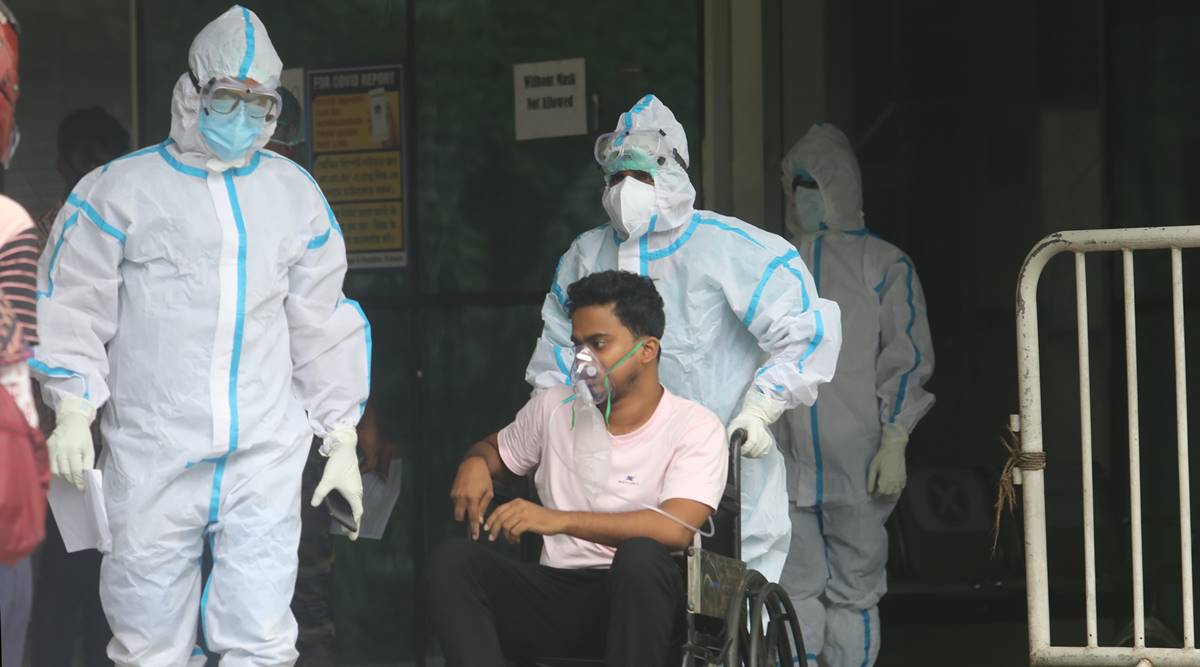Centre’s major role is in vaccine procurement. Aside from that, it has only a minor, behind-the-scenes role in the health sector
A widespread belief that Indians are somehow immune to Covid had built up thanks to the government and government-controlled media. But the second wave struck us with ferocity, with daily cases touching a peak of four lakh, and daily deaths crossing 4,000 — a record for any country. Instead of a post-mortem, let us focus on what we must do to manage this crisis and prepare for the coming waves.
First and foremost, an acknowledgment that this is a national crisis calling for concerted efforts by both, the Government of India (GoI) and state governments, irrespective of party or region, is a must. Denials, finger-pointing, and media management will not help. All must rise as one and look ahead, forgetting the past, but learning from past mistakes. Admitting to mistakes is even better, but I doubt that it will ever happen.
It is time the GoI realises that health is a state subject, and that the states have been pioneering many health programmes on their own, some with support and funding from the GoI, for a very long time. The number of employees in the health wing of the GoI is negligible as compared to that in any state government. The implication is that if anything good in health or Covid management happens, the credit must rightly go to the state government. The GoI must stop claiming undue credit for better healthcare and must stop criticising state governments. But it must help them, motivate them to do better and assist them in their task.
Where the GoI must and can play a major role is in vaccination. So far, all vaccine procurement has been by the GoI, which allots vaccines to states depending on the need. It had, however, abdicated this responsibility. Fortunately, realising the chaos created by its policy, it has now accepted its role in vaccine procurement. The task before it is to procure 160 crore doses before December, the target date declared by the GoI. This works out to 26 crore doses per month as against the current production capacity of 6 crore. It must try to augment supplies by encouraging companies to produce more and through imports/gifts. It is doubtful whether this can be achieved. However, whatever it procures must be allotted to states in proportion to their eligible population. State governments must be involved in this policy. The vaccination policy may be left to the state governments based on the allocation.
The GoI must also augment supplies of critical medical goods through imports and donations from friendly nations in view of their acute shortage. It must distribute them to the needy states transparently and equitably.
State governments have rightly opted for lockdowns, which need to be lifted in a calibrated manner depending on local conditions. There is clear evidence that lockdowns have helped arrest the spread of the virus. But we must remember that lockdowns are not the solution. They just buy breathing time which can be used by governments to ramp up capacity.
State governments must set up efficient and well-functioning control rooms and telemedicine centres to guide people on home treatment and timely admission to hospitals. The private sector can also be fully involved in these efforts. Bed capacity must be increased in both private and public sectors, with all necessary requirements such as oxygen, medicines, and health workers. This planning must be for the anticipated caseload in the future so that no patient has to die for want of proper treatment.
It is also important to put in place a standard guidance protocol for health workers and control rooms to guide patients through the disease. The telemedicine doctor must be competent to provide timely guidance for hospital admission, with the control room finding the patient a bed quickly.
Printed handouts and handbooks on proper mask-wearing, hand-washing, risks associated with travel and shopping, immunity development, risks that need to be avoided will help. Enforcement of masks and distancing in public places must go on till the country is fully vaccinated.
The measures suggested above require hard work and efficient management by state governments, by a team of reputed professionals and civil servants. They must closely monitor the field data to help leaders take correct decisions.
Above all, a high level of transparency on Covid management, particularly on vaccination, beds, supplies, infections and deaths, is a must to handle this war-like situation. Daily briefing by a professional, not a politician, is the need of the hour at both the Centre and state level, giving some confidence and assurance to the public. Transparency is a good medicine to lessen public panic.
What was going on in this country was worse than a war, because in a war the enemy is seen and known. In this war, the enemy is not seen, its ways are unknown, and it can speedily change its tactics. Let us not declare victory because of the declining trend in cases. Another wave may be lurking. This calls for total co-operation of the central and the state governments and also the public. The central government must realise that states are on the forefront in this war, and therefore, play a supporting and proactive role. It has only a minor, behind-the-scenes role in the health sector. The sooner it realises this, the better will be our Covid management now, and in the coming waves.
The writer is former health secretary, government of Tamil Nadu
Source: Read Full Article



